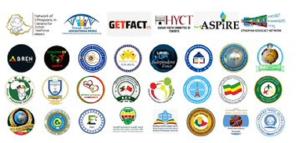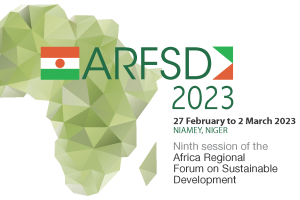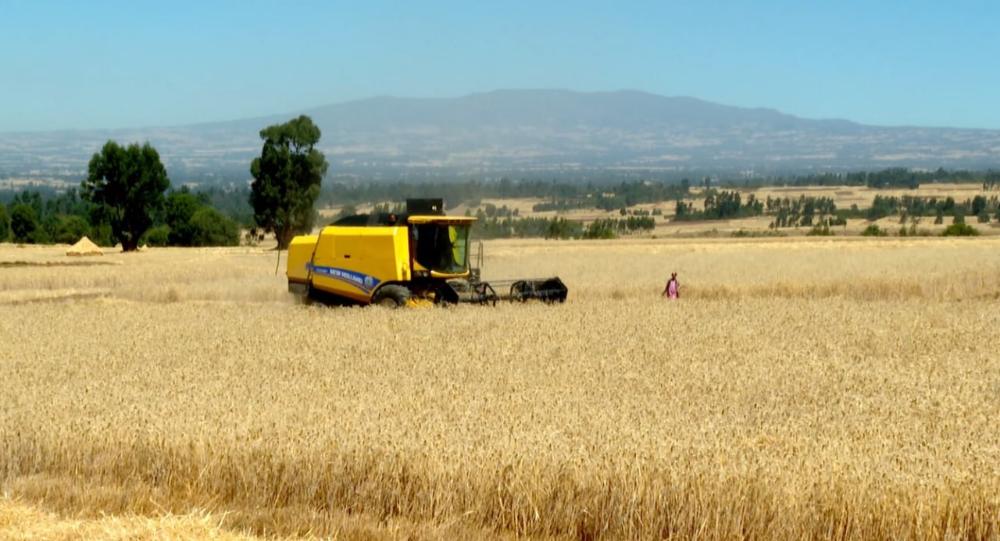ENA - ENA English
Headlines
African Sexual and Reproductive Health Conference Underway in Addis Ababa
Feb 7, 2026 379
Addis Ababa, February 7, 2026 (ENA)—A joint annual conference of the Ethiopian Society of Obstetricians and Gynecologists (ESOG) and the African Federation of Obstetrics and Gynecology (AFOG) is underway at the Hilton Addis in Addis Ababa. The ESOG and AFOG conference which has drawn participants from 20 African countries and 150 delegates across the globe, focuses on advancing reproductive health and strengthening professional capacity across Africa. Opening the two-day conference, State Minister Dr. Dereje Duguma said the Government of Ethiopia has achieved remarkable progress in reproductive and maternal health care but challenges and opportunities are waiting ahead. According to him, Sexual and Reproductive Healthcare is the central part of the health system in Ethiopia. Sexual reproductive health addresses equity in different parts of the country and it addresses the gaps in the health service provision and acceptance of women and young girls, he added. Some of the lessons that Ethiopia shares to the global community is its success in Sexual and Reproductive Health over the last many years, he said mentioning the rise of life expectancy from 65 to 68 over the last 5 years and decline of maternal mortality to 141 out of 100,00 births. Ethiopian Society of Obstetricians and Gynecologists President, Dr. Hailemariam Segni, said when we talk about sexual and productive health in Africa, we need to first start with celebrating our progress. We have generally made progress in Africa, and specifically in Ethiopia. Yet, we should not forget the challenges we have because even though maternal mortality ratio has significantly dropped, there are still mothers dying from preventable causes across Africa, he added. To addresses the remaining challenges, the President stressed the need for a resilient health system that by default will have a resilient sexual and proactive health system. Dr. Hailemariam finally called for the need to embrace innovation that is context specific, sustainable, and scalable. African Federation of Obstetrics and Gynecology president, Dr. Sami Mohamoud Abdelkair, said on his part that the Federation is very grateful to the Ethiopian Society of Obstetricians and Gynecologists for its kind invitation to the scientific program. ''Many Africans from our mother continent and from diaspora are now in this international conference,'' he noted. He expressed his hope that the conference will reach a consensus to help mothers and newborns in Africa.
Ethiopia’s Continental Role in Shaping African Unity
Feb 7, 2026 1051
By Henok Tadele Addis Ababa, February 7, 2026 (ENA) When African leaders gathered in Addis Ababa in May 1963 to establish the Organization of African Unity (OAU), the choice of venue was deliberate. Ethiopia had long occupied a distinctive place in the African political imagination — not only because it preserved its sovereignty during the colonial era, but because it symbolized the possibility of African self-determination at a time when much of the continent was under foreign rule. Long before African unity became institutionalized, Ethiopia represented political continuity in a continent fragmented by imperial expansion. The Battle of Adwa in 1896 did more than secure Ethiopia’s independence; it challenged the prevailing colonial assumption that Africa could be partitioned without resistance. For anti-colonial leaders and intellectuals across Africa and in the diaspora, Ethiopia stood as proof that sovereignty could be defended. From Symbol to Institution Builder By the early 1960s, Africa was undergoing rapid transformation. Newly independent states were defining their political identities and seeking a framework for continental cooperation. The urgency for unity was clear. Addis Ababa provided both historic legitimacy and diplomatic space. Emperor Haile Selassie played a central role in convening leaders whose ideological differences could easily have derailed the process. The divisions between the Casablanca and Monrovia groups required careful negotiation. Ethiopia’s approach emphasized cohesion and consensus, helping to ensure that unity prevailed over fragmentation. The OAU Charter, signed on May 25, 1963, enshrined principles that would guide African diplomacy for generations — sovereignty, territorial integrity, non-interference, and solidarity against colonialism and apartheid. Ethiopia did not merely host the founding summit; it invested sustained political commitment in supporting the institution’s continuity and credibility. Addis Ababa soon evolved into more than a meeting venue. It became the diplomatic capital of Africa. Supporting Liberation and Continental Solidarity Throughout the liberation struggles in Southern Africa, Ethiopia offered diplomatic backing, advocacy, and consistent support for anti-colonial movements within the OAU framework. The eventual independence of several African nations and the dismantling of apartheid were shaped by coordinated continental efforts in which Ethiopia was an active participant. Ethiopia’s role was steady and institutional, reinforcing the conviction that African challenges required collective African responses. This principle became a defining feature of continental diplomacy. From the OAU to the African Union As Africa entered a new century, the transformation of the OAU into the African Union (AU) in 2002 marked a structural evolution in continental governance. The AU introduced stronger mechanisms for peace and security, economic integration, and political accountability. Ethiopia remained at the center of this transition. As host of the AU headquarters, including the modern complex inaugurated in 2012 — the country reaffirmed its long-standing commitment to African multilateralism. Addis Ababa continues to serve as the political heart of continental deliberation, where major decisions affecting Africa’s future are debated and shaped. Peacekeeping and Regional Responsibility Beyond institutional hosting, Ethiopia has been among the leading African contributors to UN and AU peacekeeping missions. Ethiopian forces have served in Somalia, Sudan, South Sudan, Abyei, and other areas requiring stabilization efforts. These contributions reflect a practical commitment to continental peace and security. Ethiopia has also engaged in diplomatic initiatives within the Horn of Africa and neighboring regions, recognizing that regional stability is inseparable from continental progress. Development and African Self-Reliance Ethiopia’s continental contribution has also extended into development policy. Its emphasis on infrastructure, renewable energy, industrialization, and regional power connectivity has aligned with broader African aspirations for economic transformation. The Grand Ethiopian Renaissance Dam (GERD), financed largely through domestic resources, has been presented as an example of African self-financed development. It reflects a broader continental discussion about economic sovereignty and internal resource mobilization as pathways to long-term independence. Today, Addis Ababa hosts not only the AU Commission but also the United Nations Economic Commission for Africa and numerous regional institutions. The city remains a central platform for dialogue on trade integration, including the implementation of the African Continental Free Trade Area (AfCFTA). An Enduring Continental Anchor Ethiopia’s national history has spanned monarchy, revolution, reform, and renewal. Through these transformations, its continental commitment has remained constant. For more than six decades, Addis Ababa has provided continuity, space, and diplomatic grounding for African cooperation. The OAU — and later the AU — required a stable political home. Ethiopia has fulfilled that role with consistency. In the history of African integration, Ethiopia offered early inspiration through resistance and later provided institutional shelter for unity to take shape. It helped give structure to the vision of continental solidarity — and continues to host the forum where Africa defines its collective future. Conclusion In the coming days, Addis Ababa will once again host African leaders as the African Union convenes to address key priorities, including water cooperation under Agenda 2063. The focus on sustainable water availability and governance and climate resilience highlights the urgency of collective African solutions to shared challenges. The fact that this dialogue takes place in Addis Ababa reflects enduring continuity. For decades, Ethiopia has provided the diplomatic space where continental priorities are debated and shaped. Ethiopia’s push for renewable energy and regional power interconnection further aligns with these goals. By expanding cross-border electricity links and supporting regional power pools, it has sought to advance energy security as a foundation for integration. As Africa confronts water, energy, and climate challenges, Addis Ababa once again stands at the center of continental deliberation, a forum where Africa defines its common future.
Nat'l Dialogue, Upcoming Election Foster Democratic Culture in Ethiopia, Says MP Ambassador Dina
Feb 7, 2026 429
Addis Ababa, February 7, 2026 (ENA)—Ethiopia’s nationwide reconciliations process and the forthcoming seventh national election are crucial to fostering democratic values and a culture of civil politics across the country, Ambassador Dina Mufti said. Speaking to ENA, a member of the Foreign Relations and Peace Affairs Standing Committee of the House of Peoples’ Representatives, Ambassador Dina noted that the National Dialogue initiative is designed to ease political polarization and bring together diverse viewpoints to address longstanding differences among Ethiopians. He added that preparations for the general election, scheduled for June 1, 2026, are progressing steadily. According to the ambassador, the Ethiopian National Dialogue Commission (ENDC) has been actively engaging communities nationwide, collecting public views and opinions to encourage constructive discussions on national issues. He said the insights gathered will soon be consolidated into a public agenda, allowing citizens to collectively examine and address the root causes of divisions. “The national dialogue process plays a critical role in enhancing democratic culture by helping society resolve differences in a civilized manner,” Ambassador Dina said. He added: “Dialogue is a core principle of democracy. The Commission is creating a conducive environment where citizens can freely express their ideas and work toward viable solutions.” On the upcoming election, Ambassador Dina said the National Election Board of Ethiopia is working to ensure the process is democratic, transparent, and inclusive. He expressed optimism that the election will be conducted peacefully with the active participation of all stakeholders. “We expect a calm electoral environment supported by broad engagement from political actors and the public,” he said, emphasizing that transparency and inclusive participation are essential for ensuring the election contributes to a stable and prosperous Ethiopia. In a recent address to the House of Peoples’ Representatives, Prime Minister Abiy Ahmed underscored the importance of shifting Ethiopia’s political culture from confrontation to dialogue. Dina observed that Ethiopians have historically relied on force rather than discussion to resolve disagreements—a tendency he said has undermined lasting peace and national unity. The Prime Minister explained that this confrontational mindset often begins at the family level and later shapes political and social behavior, eventually fueling broader national conflicts. He stressed that sustainable peace requires transforming political culture and social norms by prioritizing dialogue, trust, and mutual understanding. Calling on the current generation to seize what he described as a historic opportunity, Prime Minister Abiy urged Ethiopians to build the nation through inclusive national dialogue. He also reaffirmed the government’s commitment to ensuring that this year’s election is peaceful, fair, and inclusive. “With regard to the election, my message to the Ethiopian people is: let us judge it by the results,” the Prime Minister said. “I can state with confidence that this parliament will be a place where diverse voices are heard in many ways.”
Ethiopia's Energy Dev't Game Changer for Country, Africa: UNIDO Representative
Feb 7, 2026 453
Addis Ababa, February 7, 2026 (ENA)—Ethiopia's remarkable move towards energy development is a game changer for the country and Africa at large, UNIDO Representative and Sub-Regional Office Director, Stephen Kargbo, said. Speaking to ENA, Kargbo praised Ethiopia for its notable strides in enhancing regional integration across various sectors, particularly in energy development. According to him, the country’s potential plays a pivotal not only in the nation’s industrialization and social development, but also in fostering regional integration and addressing the continent's energy challenges. Moreover, Ethiopia’s progress towards offering affordable energy is a substantial advancement for both the nation and the sub-region as a whole, he noted. “Ethiopia's development and progress towards providing affordable energy for its people and the region is a significant step forward.” He further stressed that the energy developments are poised to be game changers for Ethiopia and all other African nations. The UNIDO Representative also noted that the significant hurdle facing Africa is the scarcity of energy required to fuel industrialization, hospitals, schools, and digital initiatives. Without reliable and affordable energy, Africa’s advancements in digitalization and overall development are compromised, he stressed. “One of the biggest challenges that we face in Africa is the lack of energy to power industrialization, the lack of energy to power our clinics, our hospitals, the lack of energy to even power our schools, including internet; and I can go on even to digitalization. If we don't have affordable and reliable energy, we can forget about it.” In this regard, Kargbo drew a stark comparison citing his previous experience in China, where the country's energy installed capacity exceeds that of all of Africa combined by a substantial margin, illustrating the gap Africa needs to bridge to catch up with global industrial advancements.
Ethiopian Kerchanshe, Brazil’s Embrapa Ink Landmark Coffee Technology Pact
Feb 7, 2026 868
Addis Ababa, February 7, 2026 (ENA)—Ethiopian Kerchanshe Group and Brazil’s Agricultural Research Corporation (Embrapa) have signed a cooperation agreement aimed at strengthening collaboration in agricultural technology, with a particular focus on coffee development and modern production systems. The agreement was concluded a day after the historic Ethiopia–Brazil Trade and Investment Forum held in Addis Ababa, signaling concrete follow-up action to elevate bilateral economic ties to a new level. The partnership will focus on coffee development in Debeka, Abaya Woreda, West Guji Zone of Oromia region. Under the agreement, the two institutions will jointly work on agricultural quality enhancement and control systems, capacity-building for workers, and other related areas of cooperation. Speaking at the signing ceremony, State Minister of Agriculture Efa Muleta said the agreement will play a significant role in Ethiopia’s economic growth. He emphasized that the government will provide close follow-up and necessary support to ensure the agreement is effectively implemented and delivers tangible results. ENA reported from the spot that the agreement was signed in the presence of senior government officials and invited guests, including Brazilian Ambassador to Ethiopia Jandyr Ferreira dos Santos and Embrapa President Silvia Maria Fonseca Silveira Massruhá. Kerchanshe Group Chief Executive Officer Israel Degafa, for his part, noted that Ethiopia and Brazil share many similarities in the agricultural sector. He stated that the agreement framework will help elevate cooperation between the two countries to a higher level, particularly through the transfer of Brazil’s agricultural development experience—especially in coffee development and technology transfer. According to information shared during the event, Kerchanshe currently exports coffee seedlings to more than 20 countries, underscoring Ethiopia’s expanding footprint in global coffee value chains. The signing ceremony comes on the heels of the largest-ever Ethiopia–Brazil Trade and Investment Forum, held in Addis Ababa on February 6, 2026. Embrapa, a leading research institution under Brazil’s Ministry of Agriculture, Livestock and Food Supply, plays a central role in transforming tropical agriculture through science-driven and sustainable solutions. The corporation is known for its expertise in research, development and innovation (RD&I), including plant genetic improvement, soil-plant systems, bio-inputs, and climate-smart agricultural practices. Through its international cooperation arm, Embrapa has been expanding partnerships across Africa and Latin America, promoting knowledge exchange, technical capacity-building, and technology transfer to address shared ecological and agricultural challenges. Its focus on sustainable agriculture, low-carbon production systems, and innovation-driven solutions aligns closely with Ethiopia’s efforts to modernize its agricultural sector, enhance productivity, and strengthen food security. The newly signed agreement is therefore expected to serve not only as a bilateral business arrangement but also as a strategic bridge for technology transfer and long-term collaboration in tropical agriculture—particularly in coffee, a flagship export commodity for Ethiopia. With both countries recognized as global coffee powerhouses, the partnership signals a new chapter in leveraging research, innovation, and South-South cooperation to boost value addition, quality standards, and competitiveness in international markets.
Politics
Ethiopia’s Continental Role in Shaping African Unity
Feb 7, 2026 1051
By Henok Tadele Addis Ababa, February 7, 2026 (ENA) When African leaders gathered in Addis Ababa in May 1963 to establish the Organization of African Unity (OAU), the choice of venue was deliberate. Ethiopia had long occupied a distinctive place in the African political imagination — not only because it preserved its sovereignty during the colonial era, but because it symbolized the possibility of African self-determination at a time when much of the continent was under foreign rule. Long before African unity became institutionalized, Ethiopia represented political continuity in a continent fragmented by imperial expansion. The Battle of Adwa in 1896 did more than secure Ethiopia’s independence; it challenged the prevailing colonial assumption that Africa could be partitioned without resistance. For anti-colonial leaders and intellectuals across Africa and in the diaspora, Ethiopia stood as proof that sovereignty could be defended. From Symbol to Institution Builder By the early 1960s, Africa was undergoing rapid transformation. Newly independent states were defining their political identities and seeking a framework for continental cooperation. The urgency for unity was clear. Addis Ababa provided both historic legitimacy and diplomatic space. Emperor Haile Selassie played a central role in convening leaders whose ideological differences could easily have derailed the process. The divisions between the Casablanca and Monrovia groups required careful negotiation. Ethiopia’s approach emphasized cohesion and consensus, helping to ensure that unity prevailed over fragmentation. The OAU Charter, signed on May 25, 1963, enshrined principles that would guide African diplomacy for generations — sovereignty, territorial integrity, non-interference, and solidarity against colonialism and apartheid. Ethiopia did not merely host the founding summit; it invested sustained political commitment in supporting the institution’s continuity and credibility. Addis Ababa soon evolved into more than a meeting venue. It became the diplomatic capital of Africa. Supporting Liberation and Continental Solidarity Throughout the liberation struggles in Southern Africa, Ethiopia offered diplomatic backing, advocacy, and consistent support for anti-colonial movements within the OAU framework. The eventual independence of several African nations and the dismantling of apartheid were shaped by coordinated continental efforts in which Ethiopia was an active participant. Ethiopia’s role was steady and institutional, reinforcing the conviction that African challenges required collective African responses. This principle became a defining feature of continental diplomacy. From the OAU to the African Union As Africa entered a new century, the transformation of the OAU into the African Union (AU) in 2002 marked a structural evolution in continental governance. The AU introduced stronger mechanisms for peace and security, economic integration, and political accountability. Ethiopia remained at the center of this transition. As host of the AU headquarters, including the modern complex inaugurated in 2012 — the country reaffirmed its long-standing commitment to African multilateralism. Addis Ababa continues to serve as the political heart of continental deliberation, where major decisions affecting Africa’s future are debated and shaped. Peacekeeping and Regional Responsibility Beyond institutional hosting, Ethiopia has been among the leading African contributors to UN and AU peacekeeping missions. Ethiopian forces have served in Somalia, Sudan, South Sudan, Abyei, and other areas requiring stabilization efforts. These contributions reflect a practical commitment to continental peace and security. Ethiopia has also engaged in diplomatic initiatives within the Horn of Africa and neighboring regions, recognizing that regional stability is inseparable from continental progress. Development and African Self-Reliance Ethiopia’s continental contribution has also extended into development policy. Its emphasis on infrastructure, renewable energy, industrialization, and regional power connectivity has aligned with broader African aspirations for economic transformation. The Grand Ethiopian Renaissance Dam (GERD), financed largely through domestic resources, has been presented as an example of African self-financed development. It reflects a broader continental discussion about economic sovereignty and internal resource mobilization as pathways to long-term independence. Today, Addis Ababa hosts not only the AU Commission but also the United Nations Economic Commission for Africa and numerous regional institutions. The city remains a central platform for dialogue on trade integration, including the implementation of the African Continental Free Trade Area (AfCFTA). An Enduring Continental Anchor Ethiopia’s national history has spanned monarchy, revolution, reform, and renewal. Through these transformations, its continental commitment has remained constant. For more than six decades, Addis Ababa has provided continuity, space, and diplomatic grounding for African cooperation. The OAU — and later the AU — required a stable political home. Ethiopia has fulfilled that role with consistency. In the history of African integration, Ethiopia offered early inspiration through resistance and later provided institutional shelter for unity to take shape. It helped give structure to the vision of continental solidarity — and continues to host the forum where Africa defines its collective future. Conclusion In the coming days, Addis Ababa will once again host African leaders as the African Union convenes to address key priorities, including water cooperation under Agenda 2063. The focus on sustainable water availability and governance and climate resilience highlights the urgency of collective African solutions to shared challenges. The fact that this dialogue takes place in Addis Ababa reflects enduring continuity. For decades, Ethiopia has provided the diplomatic space where continental priorities are debated and shaped. Ethiopia’s push for renewable energy and regional power interconnection further aligns with these goals. By expanding cross-border electricity links and supporting regional power pools, it has sought to advance energy security as a foundation for integration. As Africa confronts water, energy, and climate challenges, Addis Ababa once again stands at the center of continental deliberation, a forum where Africa defines its common future.
Nat'l Dialogue, Upcoming Election Foster Democratic Culture in Ethiopia, Says MP Ambassador Dina
Feb 7, 2026 429
Addis Ababa, February 7, 2026 (ENA)—Ethiopia’s nationwide reconciliations process and the forthcoming seventh national election are crucial to fostering democratic values and a culture of civil politics across the country, Ambassador Dina Mufti said. Speaking to ENA, a member of the Foreign Relations and Peace Affairs Standing Committee of the House of Peoples’ Representatives, Ambassador Dina noted that the National Dialogue initiative is designed to ease political polarization and bring together diverse viewpoints to address longstanding differences among Ethiopians. He added that preparations for the general election, scheduled for June 1, 2026, are progressing steadily. According to the ambassador, the Ethiopian National Dialogue Commission (ENDC) has been actively engaging communities nationwide, collecting public views and opinions to encourage constructive discussions on national issues. He said the insights gathered will soon be consolidated into a public agenda, allowing citizens to collectively examine and address the root causes of divisions. “The national dialogue process plays a critical role in enhancing democratic culture by helping society resolve differences in a civilized manner,” Ambassador Dina said. He added: “Dialogue is a core principle of democracy. The Commission is creating a conducive environment where citizens can freely express their ideas and work toward viable solutions.” On the upcoming election, Ambassador Dina said the National Election Board of Ethiopia is working to ensure the process is democratic, transparent, and inclusive. He expressed optimism that the election will be conducted peacefully with the active participation of all stakeholders. “We expect a calm electoral environment supported by broad engagement from political actors and the public,” he said, emphasizing that transparency and inclusive participation are essential for ensuring the election contributes to a stable and prosperous Ethiopia. In a recent address to the House of Peoples’ Representatives, Prime Minister Abiy Ahmed underscored the importance of shifting Ethiopia’s political culture from confrontation to dialogue. Dina observed that Ethiopians have historically relied on force rather than discussion to resolve disagreements—a tendency he said has undermined lasting peace and national unity. The Prime Minister explained that this confrontational mindset often begins at the family level and later shapes political and social behavior, eventually fueling broader national conflicts. He stressed that sustainable peace requires transforming political culture and social norms by prioritizing dialogue, trust, and mutual understanding. Calling on the current generation to seize what he described as a historic opportunity, Prime Minister Abiy urged Ethiopians to build the nation through inclusive national dialogue. He also reaffirmed the government’s commitment to ensuring that this year’s election is peaceful, fair, and inclusive. “With regard to the election, my message to the Ethiopian people is: let us judge it by the results,” the Prime Minister said. “I can state with confidence that this parliament will be a place where diverse voices are heard in many ways.”
National Dialogue Commission Marks Major Progress in Agenda Collection
Feb 6, 2026 687
Addis Ababa, February 6, 2026 (ENA)—The Ethiopian National Dialogue Commission (ENDC) has reached a significant milestone by completing the collection and identification of key agendas for the upcoming national dialogue process. In an exclusive interview with ENA, ENDC spokesperson Tibebu Tadesse emphasized the Commission’s dedication to addressing ideological divisions and longstanding grievances through peaceful, dialogue-based engagement. “These initiatives are vital for fostering national consensus and fortifying the foundations of a robust state,” he added. The Commission has prioritized inclusivity, ensuring every sector of society has a voice, Tibebu noted, adding that the agenda gathering was conducted extensively across the federal government, all regional states, the two city administrations, and notably among the Ethiopian diaspora. Beyond compiling diverse viewpoints, the Commission has progressed in shaping core themes and selecting participants for the main dialogue sessions. Tibebu further pointed out that the platforms established so far encourage transparency and allow participants to share their views openly. According to him, this historic process presents a critical opportunity to address the root causes of national divisions and work toward a more unified future for Ethiopia.
ENDC Driving Shift Toward Dialogue Based Political Culture
Feb 6, 2026 647
Addis Ababa, February 6, 2026 (ENA)—The Ethiopian National Dialogue Commission (ENDC) is playing a decisive role in reshaping the country’s political culture by promoting dialogue, inclusion and reconciliation, Democracy Affairs Standing Committee Chairperson at the House of Peoples’ Representatives Ewnetu Alene said. The Commission presented its overall performance and upcoming activities to the Democracy Affairs Standing Committee where lawmakers reviewed progress made so far in advancing the national dialogue process. Addressing the session, Ewnetu commended the Commission for what he described as groundbreaking efforts to move Ethiopia away from confrontational politics toward constructive engagement. ENDC has emerged as a vital agent of change in a country long affected by political tensions, he added. “The work of the Commission marks a clear break from decades of divisive political practices and helps lay the foundation for a culture rooted in dialogue and reconciliation,” he stated. Ewnetu further stressed that the national dialogue process is a key pathway toward a more unified and democratic Ethiopia, urging the Commission to conclude its remaining tasks within the planned timeframe. He also called on groups yet to participate, particularly stakeholders in the Tigray region, to join the process and make use of what he termed a golden opportunity. For his part, ENDC Chief Commissioner Mesfin Araya said the agenda gathering and identification process has been completed in 11 regional states and two city administrations, reaching 93 percent overall participation. He noted that the process remains pending in the Tigray region and in four districts of the Amhara region. Mesfin emphasized that the dialogue process has been inclusive, engaging diverse segments of society to ensure broad representation at the forthcoming national dialogue conference. He further disclosed that the Commission has selected 170 dialogue facilitators to lead the conference, scheduled for the coming months, while continuing outreach efforts to remaining groups and stakeholders in the Tigray region.
Prime Minister Abiy Receives Warm Welcome at Kombolcha Airport
Feb 6, 2026 739
Addis Ababa, February 6, 2026 (ENA)—Prime Minister Abiy Ahmed, accompanied by First Lady Zinash Tayachew, arrived today at Kombolcha Airport in the Amhara Region, where they were accorded a warm and respectful reception. Upon arrival at Wollo Kombolcha Airport, community elders welcomed the Prime Minister and the First Lady with traditional blessings, symbolizing goodwill, unity, and respect.
AUC Chair Engages Regional Economic Communities Ahead of 2026 AU Summit
Feb 6, 2026 1249
Addis Ababa, February 6, 2026 (ENA)—The Chairperson of the African Union Commission (AUC), Mahmoud Ali Youssouf, last night held consultations with the Permanent Representatives of the African Union’s Regional Economic Communities (RECs), briefing them on the Commission’s strategic priorities ahead of the upcoming African Union Summit. The 48th Ordinary Session of the Executive Council and the 39th Ordinary Session of the Assembly of Heads of State and Government are scheduled to take place in Addis Ababa from 11 to 15 February 2026. The engagement—welcomed by the Permanent Representatives as an unprecedented and institutionalised dialogue—marked the fourth such interaction under the current leadership of the African Union Commission. It underscored the Commission’s commitment to strengthening coordination between the AU and the RECs in line with the principle of subsidiarity. Discussions focused on the sustainable financing of the African Union Commission and the RECs, enhanced alignment of peace, security, mediation, and preventive diplomacy efforts, the acceleration of regional integration, and collective responses to evolving global geopolitical dynamics. Participants further emphasized the importance of strengthening African agency through locally driven and sustainable development financing mechanisms. The consultations reaffirmed the central role of AU–REC collaboration in advancing Africa’s integration, stability, and development agenda.
Ethio-Kenya Joint Defense Committee (JDC) Meeting Concludes
Feb 5, 2026 1415
Addis Ababa, February 5, 2026 (ENA)—The First Ethio-Kenya Joint Defense Committee (JDC) meeting held at the Defense Headquarters in Nairobi has successfully concluded, according to the Ethiopian Defense Force. The meeting aimed at strengthening bilateral defense cooperation, enhancing regional security coordination, and advancing strategic military engagement between the two countries. Ethiopian Delegation Head and Director-General of Foreign Relations and Military Cooperation at the Defense Force, Major General Teshome Gemechu, commended the strong ties of Ethiopian and Kenyan defense forces, which is pivotal in ensuring regional peace and stability. He affirmed that the Ethio-Kenya Defense forces bilateral relations, is based on trust, respect and mutual benefit; noting that the two sides have played a significant role in ensuring regional peace and security in a collaborative manner beyond safeguarding their own interests. The agendas tabled during the meeting were instrumental in transforming cooperation into a more advanced level, Major General Teshome said, adding that the meeting also highlighted the need for advancing on a strong stance regarding the collective participation that the current situation in the region requires. He also stressed the need for continuation of such encouraging endeavors without being distracted by elements who do not appreciate the strong bilateral cooperation and effectiveness, reaffirming the commitment of the Ethiopian Defense Force to fulfill its role responsibly, diligently, and effectively. Assistant Chief of Defense Forces in charge of Operations, Plans, Doctrine and Training (ACDF OPD&T), Major General Frederick Leuria, said for his part that the two countries’ strong relations in trade, investment and energy sectors alongside having strong people-to-people ties have been in place for centuries. He also emphasized the instrumental role of the meeting in ensuring the mutual benefit of the countries by strengthening cooperation in peace and security areas. The meeting was a follow up of the signing of a Defense Cooperation Agreement last year, which established a structured framework for coordinating, managing, and deepening defense relations between Kenya and Ethiopia in pursuit of regional peace, stability, and collective security.
Ethiopia to Advance Nat'l Interests at African Union, Italy-Africa Summits: Spokesperson
Feb 5, 2026 2613
Addis Ababa, February 5, 2026 (ENA)—Ethiopia has made full preparations to advance its national interests at the upcoming 39th African Union Summit and the Italy-Africa Summit that will take place in the capital city, Ministry of Foreign Affairs Spokesperson Nebiat Getachew said. The Spokesperson briefed journalists today on the general arrangements made for the 39th African Union Summit and the Italy-Africa Summit. The Ordinary Session of the Executive Council of the African Union will be held from 11–12 February, and the Summit on 14–15 February. The Italy-Africa Summit will take placed on 13th February 2026. According to Nebiyat, Ethiopia has made comprehensive logistical arrangements and is prepared for active engagement at both diplomatic and economic levels. The spokesperson emphasized the importance of both summits for fostering political and economic diplomacy. Accordingly, Ethiopia is preparing to actively participate in the summits on issues that promote its national interests, and enhance conference tourism that reflects Ethiopian culture and values by providing special hospitality for the participants. He added that this year, as in the past, 179 young volunteers were recruited for the African Union Summit, demonstrating the principle that every citizen is a diplomat for his or her country. The Spokesperson explained that this youth volunteer activity is being carried out in line with the Youth Volunteer Service Framework established by Prime Minister Abiy Ahmed, calling on all Ethiopians to extend their usual cooperation to ensure the success of summits. Furthermore, Nebiat stated that Ethiopia has made full preparations in terms of logistics, protocol, and security. Recalling that the theme of the year’s AU summit is “Assuring sustainable water availability and safe sanitation systems to achieve the goals of Agenda 2063,” he said Ethiopia has carried out many activities in line with this theme. Ethiopia has made significant progress in water cooperation and remains committed to transforming the Nile Basin Cooperation Framework into a Commission, the Spokesperson noted. Ethiopia has connected its neighbors through renewable energy, carried out water conservation efforts that have restored and enhanced water resources, and made significant contributions with the Green Legacy Initiative.
Politics
Ethiopia’s Continental Role in Shaping African Unity
Feb 7, 2026 1051
By Henok Tadele Addis Ababa, February 7, 2026 (ENA) When African leaders gathered in Addis Ababa in May 1963 to establish the Organization of African Unity (OAU), the choice of venue was deliberate. Ethiopia had long occupied a distinctive place in the African political imagination — not only because it preserved its sovereignty during the colonial era, but because it symbolized the possibility of African self-determination at a time when much of the continent was under foreign rule. Long before African unity became institutionalized, Ethiopia represented political continuity in a continent fragmented by imperial expansion. The Battle of Adwa in 1896 did more than secure Ethiopia’s independence; it challenged the prevailing colonial assumption that Africa could be partitioned without resistance. For anti-colonial leaders and intellectuals across Africa and in the diaspora, Ethiopia stood as proof that sovereignty could be defended. From Symbol to Institution Builder By the early 1960s, Africa was undergoing rapid transformation. Newly independent states were defining their political identities and seeking a framework for continental cooperation. The urgency for unity was clear. Addis Ababa provided both historic legitimacy and diplomatic space. Emperor Haile Selassie played a central role in convening leaders whose ideological differences could easily have derailed the process. The divisions between the Casablanca and Monrovia groups required careful negotiation. Ethiopia’s approach emphasized cohesion and consensus, helping to ensure that unity prevailed over fragmentation. The OAU Charter, signed on May 25, 1963, enshrined principles that would guide African diplomacy for generations — sovereignty, territorial integrity, non-interference, and solidarity against colonialism and apartheid. Ethiopia did not merely host the founding summit; it invested sustained political commitment in supporting the institution’s continuity and credibility. Addis Ababa soon evolved into more than a meeting venue. It became the diplomatic capital of Africa. Supporting Liberation and Continental Solidarity Throughout the liberation struggles in Southern Africa, Ethiopia offered diplomatic backing, advocacy, and consistent support for anti-colonial movements within the OAU framework. The eventual independence of several African nations and the dismantling of apartheid were shaped by coordinated continental efforts in which Ethiopia was an active participant. Ethiopia’s role was steady and institutional, reinforcing the conviction that African challenges required collective African responses. This principle became a defining feature of continental diplomacy. From the OAU to the African Union As Africa entered a new century, the transformation of the OAU into the African Union (AU) in 2002 marked a structural evolution in continental governance. The AU introduced stronger mechanisms for peace and security, economic integration, and political accountability. Ethiopia remained at the center of this transition. As host of the AU headquarters, including the modern complex inaugurated in 2012 — the country reaffirmed its long-standing commitment to African multilateralism. Addis Ababa continues to serve as the political heart of continental deliberation, where major decisions affecting Africa’s future are debated and shaped. Peacekeeping and Regional Responsibility Beyond institutional hosting, Ethiopia has been among the leading African contributors to UN and AU peacekeeping missions. Ethiopian forces have served in Somalia, Sudan, South Sudan, Abyei, and other areas requiring stabilization efforts. These contributions reflect a practical commitment to continental peace and security. Ethiopia has also engaged in diplomatic initiatives within the Horn of Africa and neighboring regions, recognizing that regional stability is inseparable from continental progress. Development and African Self-Reliance Ethiopia’s continental contribution has also extended into development policy. Its emphasis on infrastructure, renewable energy, industrialization, and regional power connectivity has aligned with broader African aspirations for economic transformation. The Grand Ethiopian Renaissance Dam (GERD), financed largely through domestic resources, has been presented as an example of African self-financed development. It reflects a broader continental discussion about economic sovereignty and internal resource mobilization as pathways to long-term independence. Today, Addis Ababa hosts not only the AU Commission but also the United Nations Economic Commission for Africa and numerous regional institutions. The city remains a central platform for dialogue on trade integration, including the implementation of the African Continental Free Trade Area (AfCFTA). An Enduring Continental Anchor Ethiopia’s national history has spanned monarchy, revolution, reform, and renewal. Through these transformations, its continental commitment has remained constant. For more than six decades, Addis Ababa has provided continuity, space, and diplomatic grounding for African cooperation. The OAU — and later the AU — required a stable political home. Ethiopia has fulfilled that role with consistency. In the history of African integration, Ethiopia offered early inspiration through resistance and later provided institutional shelter for unity to take shape. It helped give structure to the vision of continental solidarity — and continues to host the forum where Africa defines its collective future. Conclusion In the coming days, Addis Ababa will once again host African leaders as the African Union convenes to address key priorities, including water cooperation under Agenda 2063. The focus on sustainable water availability and governance and climate resilience highlights the urgency of collective African solutions to shared challenges. The fact that this dialogue takes place in Addis Ababa reflects enduring continuity. For decades, Ethiopia has provided the diplomatic space where continental priorities are debated and shaped. Ethiopia’s push for renewable energy and regional power interconnection further aligns with these goals. By expanding cross-border electricity links and supporting regional power pools, it has sought to advance energy security as a foundation for integration. As Africa confronts water, energy, and climate challenges, Addis Ababa once again stands at the center of continental deliberation, a forum where Africa defines its common future.
Nat'l Dialogue, Upcoming Election Foster Democratic Culture in Ethiopia, Says MP Ambassador Dina
Feb 7, 2026 429
Addis Ababa, February 7, 2026 (ENA)—Ethiopia’s nationwide reconciliations process and the forthcoming seventh national election are crucial to fostering democratic values and a culture of civil politics across the country, Ambassador Dina Mufti said. Speaking to ENA, a member of the Foreign Relations and Peace Affairs Standing Committee of the House of Peoples’ Representatives, Ambassador Dina noted that the National Dialogue initiative is designed to ease political polarization and bring together diverse viewpoints to address longstanding differences among Ethiopians. He added that preparations for the general election, scheduled for June 1, 2026, are progressing steadily. According to the ambassador, the Ethiopian National Dialogue Commission (ENDC) has been actively engaging communities nationwide, collecting public views and opinions to encourage constructive discussions on national issues. He said the insights gathered will soon be consolidated into a public agenda, allowing citizens to collectively examine and address the root causes of divisions. “The national dialogue process plays a critical role in enhancing democratic culture by helping society resolve differences in a civilized manner,” Ambassador Dina said. He added: “Dialogue is a core principle of democracy. The Commission is creating a conducive environment where citizens can freely express their ideas and work toward viable solutions.” On the upcoming election, Ambassador Dina said the National Election Board of Ethiopia is working to ensure the process is democratic, transparent, and inclusive. He expressed optimism that the election will be conducted peacefully with the active participation of all stakeholders. “We expect a calm electoral environment supported by broad engagement from political actors and the public,” he said, emphasizing that transparency and inclusive participation are essential for ensuring the election contributes to a stable and prosperous Ethiopia. In a recent address to the House of Peoples’ Representatives, Prime Minister Abiy Ahmed underscored the importance of shifting Ethiopia’s political culture from confrontation to dialogue. Dina observed that Ethiopians have historically relied on force rather than discussion to resolve disagreements—a tendency he said has undermined lasting peace and national unity. The Prime Minister explained that this confrontational mindset often begins at the family level and later shapes political and social behavior, eventually fueling broader national conflicts. He stressed that sustainable peace requires transforming political culture and social norms by prioritizing dialogue, trust, and mutual understanding. Calling on the current generation to seize what he described as a historic opportunity, Prime Minister Abiy urged Ethiopians to build the nation through inclusive national dialogue. He also reaffirmed the government’s commitment to ensuring that this year’s election is peaceful, fair, and inclusive. “With regard to the election, my message to the Ethiopian people is: let us judge it by the results,” the Prime Minister said. “I can state with confidence that this parliament will be a place where diverse voices are heard in many ways.”
National Dialogue Commission Marks Major Progress in Agenda Collection
Feb 6, 2026 687
Addis Ababa, February 6, 2026 (ENA)—The Ethiopian National Dialogue Commission (ENDC) has reached a significant milestone by completing the collection and identification of key agendas for the upcoming national dialogue process. In an exclusive interview with ENA, ENDC spokesperson Tibebu Tadesse emphasized the Commission’s dedication to addressing ideological divisions and longstanding grievances through peaceful, dialogue-based engagement. “These initiatives are vital for fostering national consensus and fortifying the foundations of a robust state,” he added. The Commission has prioritized inclusivity, ensuring every sector of society has a voice, Tibebu noted, adding that the agenda gathering was conducted extensively across the federal government, all regional states, the two city administrations, and notably among the Ethiopian diaspora. Beyond compiling diverse viewpoints, the Commission has progressed in shaping core themes and selecting participants for the main dialogue sessions. Tibebu further pointed out that the platforms established so far encourage transparency and allow participants to share their views openly. According to him, this historic process presents a critical opportunity to address the root causes of national divisions and work toward a more unified future for Ethiopia.
ENDC Driving Shift Toward Dialogue Based Political Culture
Feb 6, 2026 647
Addis Ababa, February 6, 2026 (ENA)—The Ethiopian National Dialogue Commission (ENDC) is playing a decisive role in reshaping the country’s political culture by promoting dialogue, inclusion and reconciliation, Democracy Affairs Standing Committee Chairperson at the House of Peoples’ Representatives Ewnetu Alene said. The Commission presented its overall performance and upcoming activities to the Democracy Affairs Standing Committee where lawmakers reviewed progress made so far in advancing the national dialogue process. Addressing the session, Ewnetu commended the Commission for what he described as groundbreaking efforts to move Ethiopia away from confrontational politics toward constructive engagement. ENDC has emerged as a vital agent of change in a country long affected by political tensions, he added. “The work of the Commission marks a clear break from decades of divisive political practices and helps lay the foundation for a culture rooted in dialogue and reconciliation,” he stated. Ewnetu further stressed that the national dialogue process is a key pathway toward a more unified and democratic Ethiopia, urging the Commission to conclude its remaining tasks within the planned timeframe. He also called on groups yet to participate, particularly stakeholders in the Tigray region, to join the process and make use of what he termed a golden opportunity. For his part, ENDC Chief Commissioner Mesfin Araya said the agenda gathering and identification process has been completed in 11 regional states and two city administrations, reaching 93 percent overall participation. He noted that the process remains pending in the Tigray region and in four districts of the Amhara region. Mesfin emphasized that the dialogue process has been inclusive, engaging diverse segments of society to ensure broad representation at the forthcoming national dialogue conference. He further disclosed that the Commission has selected 170 dialogue facilitators to lead the conference, scheduled for the coming months, while continuing outreach efforts to remaining groups and stakeholders in the Tigray region.
Prime Minister Abiy Receives Warm Welcome at Kombolcha Airport
Feb 6, 2026 739
Addis Ababa, February 6, 2026 (ENA)—Prime Minister Abiy Ahmed, accompanied by First Lady Zinash Tayachew, arrived today at Kombolcha Airport in the Amhara Region, where they were accorded a warm and respectful reception. Upon arrival at Wollo Kombolcha Airport, community elders welcomed the Prime Minister and the First Lady with traditional blessings, symbolizing goodwill, unity, and respect.
AUC Chair Engages Regional Economic Communities Ahead of 2026 AU Summit
Feb 6, 2026 1249
Addis Ababa, February 6, 2026 (ENA)—The Chairperson of the African Union Commission (AUC), Mahmoud Ali Youssouf, last night held consultations with the Permanent Representatives of the African Union’s Regional Economic Communities (RECs), briefing them on the Commission’s strategic priorities ahead of the upcoming African Union Summit. The 48th Ordinary Session of the Executive Council and the 39th Ordinary Session of the Assembly of Heads of State and Government are scheduled to take place in Addis Ababa from 11 to 15 February 2026. The engagement—welcomed by the Permanent Representatives as an unprecedented and institutionalised dialogue—marked the fourth such interaction under the current leadership of the African Union Commission. It underscored the Commission’s commitment to strengthening coordination between the AU and the RECs in line with the principle of subsidiarity. Discussions focused on the sustainable financing of the African Union Commission and the RECs, enhanced alignment of peace, security, mediation, and preventive diplomacy efforts, the acceleration of regional integration, and collective responses to evolving global geopolitical dynamics. Participants further emphasized the importance of strengthening African agency through locally driven and sustainable development financing mechanisms. The consultations reaffirmed the central role of AU–REC collaboration in advancing Africa’s integration, stability, and development agenda.
Ethio-Kenya Joint Defense Committee (JDC) Meeting Concludes
Feb 5, 2026 1415
Addis Ababa, February 5, 2026 (ENA)—The First Ethio-Kenya Joint Defense Committee (JDC) meeting held at the Defense Headquarters in Nairobi has successfully concluded, according to the Ethiopian Defense Force. The meeting aimed at strengthening bilateral defense cooperation, enhancing regional security coordination, and advancing strategic military engagement between the two countries. Ethiopian Delegation Head and Director-General of Foreign Relations and Military Cooperation at the Defense Force, Major General Teshome Gemechu, commended the strong ties of Ethiopian and Kenyan defense forces, which is pivotal in ensuring regional peace and stability. He affirmed that the Ethio-Kenya Defense forces bilateral relations, is based on trust, respect and mutual benefit; noting that the two sides have played a significant role in ensuring regional peace and security in a collaborative manner beyond safeguarding their own interests. The agendas tabled during the meeting were instrumental in transforming cooperation into a more advanced level, Major General Teshome said, adding that the meeting also highlighted the need for advancing on a strong stance regarding the collective participation that the current situation in the region requires. He also stressed the need for continuation of such encouraging endeavors without being distracted by elements who do not appreciate the strong bilateral cooperation and effectiveness, reaffirming the commitment of the Ethiopian Defense Force to fulfill its role responsibly, diligently, and effectively. Assistant Chief of Defense Forces in charge of Operations, Plans, Doctrine and Training (ACDF OPD&T), Major General Frederick Leuria, said for his part that the two countries’ strong relations in trade, investment and energy sectors alongside having strong people-to-people ties have been in place for centuries. He also emphasized the instrumental role of the meeting in ensuring the mutual benefit of the countries by strengthening cooperation in peace and security areas. The meeting was a follow up of the signing of a Defense Cooperation Agreement last year, which established a structured framework for coordinating, managing, and deepening defense relations between Kenya and Ethiopia in pursuit of regional peace, stability, and collective security.
Ethiopia to Advance Nat'l Interests at African Union, Italy-Africa Summits: Spokesperson
Feb 5, 2026 2613
Addis Ababa, February 5, 2026 (ENA)—Ethiopia has made full preparations to advance its national interests at the upcoming 39th African Union Summit and the Italy-Africa Summit that will take place in the capital city, Ministry of Foreign Affairs Spokesperson Nebiat Getachew said. The Spokesperson briefed journalists today on the general arrangements made for the 39th African Union Summit and the Italy-Africa Summit. The Ordinary Session of the Executive Council of the African Union will be held from 11–12 February, and the Summit on 14–15 February. The Italy-Africa Summit will take placed on 13th February 2026. According to Nebiyat, Ethiopia has made comprehensive logistical arrangements and is prepared for active engagement at both diplomatic and economic levels. The spokesperson emphasized the importance of both summits for fostering political and economic diplomacy. Accordingly, Ethiopia is preparing to actively participate in the summits on issues that promote its national interests, and enhance conference tourism that reflects Ethiopian culture and values by providing special hospitality for the participants. He added that this year, as in the past, 179 young volunteers were recruited for the African Union Summit, demonstrating the principle that every citizen is a diplomat for his or her country. The Spokesperson explained that this youth volunteer activity is being carried out in line with the Youth Volunteer Service Framework established by Prime Minister Abiy Ahmed, calling on all Ethiopians to extend their usual cooperation to ensure the success of summits. Furthermore, Nebiat stated that Ethiopia has made full preparations in terms of logistics, protocol, and security. Recalling that the theme of the year’s AU summit is “Assuring sustainable water availability and safe sanitation systems to achieve the goals of Agenda 2063,” he said Ethiopia has carried out many activities in line with this theme. Ethiopia has made significant progress in water cooperation and remains committed to transforming the Nile Basin Cooperation Framework into a Commission, the Spokesperson noted. Ethiopia has connected its neighbors through renewable energy, carried out water conservation efforts that have restored and enhanced water resources, and made significant contributions with the Green Legacy Initiative.
Social
African Sexual and Reproductive Health Conference Underway in Addis Ababa
Feb 7, 2026 379
Addis Ababa, February 7, 2026 (ENA)—A joint annual conference of the Ethiopian Society of Obstetricians and Gynecologists (ESOG) and the African Federation of Obstetrics and Gynecology (AFOG) is underway at the Hilton Addis in Addis Ababa. The ESOG and AFOG conference which has drawn participants from 20 African countries and 150 delegates across the globe, focuses on advancing reproductive health and strengthening professional capacity across Africa. Opening the two-day conference, State Minister Dr. Dereje Duguma said the Government of Ethiopia has achieved remarkable progress in reproductive and maternal health care but challenges and opportunities are waiting ahead. According to him, Sexual and Reproductive Healthcare is the central part of the health system in Ethiopia. Sexual reproductive health addresses equity in different parts of the country and it addresses the gaps in the health service provision and acceptance of women and young girls, he added. Some of the lessons that Ethiopia shares to the global community is its success in Sexual and Reproductive Health over the last many years, he said mentioning the rise of life expectancy from 65 to 68 over the last 5 years and decline of maternal mortality to 141 out of 100,00 births. Ethiopian Society of Obstetricians and Gynecologists President, Dr. Hailemariam Segni, said when we talk about sexual and productive health in Africa, we need to first start with celebrating our progress. We have generally made progress in Africa, and specifically in Ethiopia. Yet, we should not forget the challenges we have because even though maternal mortality ratio has significantly dropped, there are still mothers dying from preventable causes across Africa, he added. To addresses the remaining challenges, the President stressed the need for a resilient health system that by default will have a resilient sexual and proactive health system. Dr. Hailemariam finally called for the need to embrace innovation that is context specific, sustainable, and scalable. African Federation of Obstetrics and Gynecology president, Dr. Sami Mohamoud Abdelkair, said on his part that the Federation is very grateful to the Ethiopian Society of Obstetricians and Gynecologists for its kind invitation to the scientific program. ''Many Africans from our mother continent and from diaspora are now in this international conference,'' he noted. He expressed his hope that the conference will reach a consensus to help mothers and newborns in Africa.
Ethiopia Modernizes Visa-on-Arrival Ahead of AU Summit
Feb 7, 2026 898
Addis Ababa, February 7, 2026 (ENA)—Ethiopia has unveiled a streamlined visa-on-arrival process at Bole International Airport, designed to enhance national security while providing a seamless experience for international travelers. The reforms, announced by the Immigration and Citizenship Service (ICS), come ahead of the 39th African Union Summit. Gosa Demissie, Deputy Director General of ICS, explained that the upgraded service now covers arrival and exit visas, specialized passenger assistance, and dedicated support for international flight crews. “Previously, foreign nationals faced wait times exceeding two hours,” he said. “After implementing 11 reform measures over three years, processing now takes only minutes thanks to advanced technology and specialized staff training.” Over the past 18 months, more than 240 professionals have been deployed to support the new system. The improvements aim to meet international security standards while boosting the global competitiveness of Ethiopian Airlines. Travelers have praised the changes. Mamwelaze Koma from Lesotho said, “Wow, I got amazing service and felt very welcome. This is my first time in Ethiopia and the service is just business class. It was quick, seamless, and very professional.” Returning visitor Mavis Anima Bonsu from Ghana also noted the transformation. “There is a massive change. It is stricter, more automated, and much faster. I was prepared to wait, but the system is well improved. I congratulate the government of Ethiopia for this initiative.” Brazilian traveler Pedro Lacaz Amaral added, “They were very kind and very fast. It took only five minutes to process my passport, invitation letter, and visa payment. I am very impressed.” Hirut Assefa, a Toronto resident originally from Ethiopia, described the upgraded system as world-class. She emphasized the dedicated staff and technology that help travelers avoid long lines, expressing hope that the improvements will attract more visitors, boost the economy, and showcase Ethiopia’s rich cultural heritage. The digital visa upgrade reflects Ethiopia’s commitment to modernizing border control and positioning itself as a premier destination for international events and tourism.
PM Abiy Reaffirms Government Commitment to IDPs Return
Feb 3, 2026 956
Addis Ababa, February 3, 2026 (ENA)—The federal government is committed toward resettling the internally displaced people (IDPs) in northern Ethiopia, Prime Minister Abiy Ahmed said today. Responding to questions from members of the House of People's Representatives, he underscored that Ethiopians have the right to move freely and live anywhere they want. "Ethiopians have the right to choose where they live; and this is enshrined in the constitution," he noted. The premier, who commended the Pretoria Agreement signed to resolve the conflict in Tigray as a "great solution", urged full adherence to the agreement. In accordance with the agreement, the federal government has restored telecom, airlines, banks, electricity, and budgets in Tigray, he noted. The Prime Minister criticized those who take advantage of displacement for political reasons, comparing them to farmers who wait for crops while causing trouble. "Just like farmers that wait for crops to grow, some people intentionally create problems and hardships. They then ask for help, saying, 'You won't ever return to how things were before. ' Some groups use the suffering of the displaced people for their own benefit. " Talking about the disagreement over Wolkait, where Amhara and Tigray both claim ownership, the premier stated that this situation has kept the people of Wolkait from getting the budget they deserve and face other problems. He, therefore, urged the "brotherly peoples" to sort out their issues peacefully. The PM promised full support from the federal government for those returning to Wolkait, similar to what worked in Tselemet, Raya, and Ilubabor. "Let our people go back to their villages, help the displaced return home, and have political conversations. We must not cause pain to our people because of their ethnic background, " he noted. PM Abiy stressed that "the people in Tigray need peace and growth. They want to move away from the current confusion and, like other regions, improve their lives through hard work". He further called on the people of Tigray to move away from proxy politics and dream of a changed Mekelle that could compete with Jigjiga or Bahir Dar. "Think of Mekelle transformed into something like Jigjiga or Bahir Dar. It could become a new Addis Ababa. Every city gets equal support and resources, but without new ideas, progress will slow down. " Finally, the premier stated his belief that the people of Tigray should be empowered and become active players. But, "if we cling to the same old thinking, we stand to lose everything”, he concluded.
Adwa Victory Memorial Emerges as Powerful Symbol of Ethiopia’s National Heritage, Draws Visitors
Feb 1, 2026 1431
Addis Ababa, February 1, 2026 (ENA—The Adwa Victory Memorial continues to attract thousands who see it as a vibrant symbol of Ethiopia’s historic stand against colonialism and a testament to the nation’s enduring spirit. This landmark commemorates the 1896 Battle of Adwa, where Ethiopian forces achieved a decisive victory over Italian invaders, safeguarding the country’s sovereignty and inspiring oppressed peoples across the globe. Yoseph Beka, Director General of the Adwa Victory Memorial, told ENA that over 350,000 visitors from Ethiopia and abroad toured the site in the last six months, underscoring its significance not only as a historical monument but also as a place for reflection and education. He highlighted the deep pride Ethiopians feel for their ancestors’ sacrifices, which resonate beyond Ethiopia’s borders, inspiring Black communities worldwide. At a time when much of Africa was under colonial rule, the victory preserved Ethiopia’s independence and made the country a global symbol of resistance, dignity, and self-determination for African and Black peoples worldwide. The battle united Ethiopians from across regions and backgrounds under the leadership of Emperor Menelik II and Empress Taytu Betul, leaving a legacy that continues to inspire generations. He emphasized that the sacrifice of Ethiopia’s forefathers in defending the country’s honor and independence remains a profound source of pride, not only for Ethiopians but also for oppressed Black peoples worldwide. The Adwa Victory, celebrated annually, is recognized as one of the greatest triumphs of Black peoples against colonial aggression, underscoring its lasting historical and symbolic importance. Built in the heart of Addis Ababa, the memorial was established to preserve and pass on to future generations the legacy of heroism, unity, and patriotism demonstrated at Adwa. It serves to deepen understanding of the price paid for national unity and inspire citizens to contribute to the country’s shared goals. Yoseph described the memorial as a permanent tribute to the fierce struggle of Ethiopia’s ancestors, a living testimony that helps current and future generations grasp the history of the Adwa victory and foster a shared national narrative. He also noted the memorial’s role as a major tourism destination, with more than 10,000 of the recent visitors being teenagers, a meaningful indicator of growing historical awareness and collective identity among youth. “The Adwa Victory Memorial narrates our shared history, anchors our hopes for tomorrow, and forms the foundation of our collective narrative,” he said, adding that today’s generation, like the heroes of Adwa, is expected to make its own lasting contribution to the country’s development. Ethiopians living abroad have also expressed strong appreciation for the memorial and said the site vividly illustrates the immense sacrifice their ancestors made for the unity and sovereignty of the nation. Kia Yadene, an Ethiopian born in Italy, said the Adwa Victory Memorial powerfully commemorates the extraordinary struggle of Ethiopian patriots and serves as a national narrative that conveys hope and courage not only to Ethiopians but also to Black people around the world. Another visitor, Azeb Yadene, an Ethiopian living in California, the United States, shared her experience during her first visit. “It’s my first time here, and it’s very beautiful. I know that it was built two years ago to commemorate the many Ethiopians who refused to surrender to colonialism,” she said. “The sacrifices of Ethiopians during that time were a great inspiration not only for Ethiopia but also for Africa, and they sent a powerful message to the world. I am very happy to be here,” she added. According to her, the memorial offers an important opportunity to learn more about the history of Adwa and pass it on to future generations.
Economy
Ethiopia's Energy Dev't Game Changer for Country, Africa: UNIDO Representative
Feb 7, 2026 453
Addis Ababa, February 7, 2026 (ENA)—Ethiopia's remarkable move towards energy development is a game changer for the country and Africa at large, UNIDO Representative and Sub-Regional Office Director, Stephen Kargbo, said. Speaking to ENA, Kargbo praised Ethiopia for its notable strides in enhancing regional integration across various sectors, particularly in energy development. According to him, the country’s potential plays a pivotal not only in the nation’s industrialization and social development, but also in fostering regional integration and addressing the continent's energy challenges. Moreover, Ethiopia’s progress towards offering affordable energy is a substantial advancement for both the nation and the sub-region as a whole, he noted. “Ethiopia's development and progress towards providing affordable energy for its people and the region is a significant step forward.” He further stressed that the energy developments are poised to be game changers for Ethiopia and all other African nations. The UNIDO Representative also noted that the significant hurdle facing Africa is the scarcity of energy required to fuel industrialization, hospitals, schools, and digital initiatives. Without reliable and affordable energy, Africa’s advancements in digitalization and overall development are compromised, he stressed. “One of the biggest challenges that we face in Africa is the lack of energy to power industrialization, the lack of energy to power our clinics, our hospitals, the lack of energy to even power our schools, including internet; and I can go on even to digitalization. If we don't have affordable and reliable energy, we can forget about it.” In this regard, Kargbo drew a stark comparison citing his previous experience in China, where the country's energy installed capacity exceeds that of all of Africa combined by a substantial margin, illustrating the gap Africa needs to bridge to catch up with global industrial advancements.
Ethiopian Kerchanshe, Brazil’s Embrapa Ink Landmark Coffee Technology Pact
Feb 7, 2026 868
Addis Ababa, February 7, 2026 (ENA)—Ethiopian Kerchanshe Group and Brazil’s Agricultural Research Corporation (Embrapa) have signed a cooperation agreement aimed at strengthening collaboration in agricultural technology, with a particular focus on coffee development and modern production systems. The agreement was concluded a day after the historic Ethiopia–Brazil Trade and Investment Forum held in Addis Ababa, signaling concrete follow-up action to elevate bilateral economic ties to a new level. The partnership will focus on coffee development in Debeka, Abaya Woreda, West Guji Zone of Oromia region. Under the agreement, the two institutions will jointly work on agricultural quality enhancement and control systems, capacity-building for workers, and other related areas of cooperation. Speaking at the signing ceremony, State Minister of Agriculture Efa Muleta said the agreement will play a significant role in Ethiopia’s economic growth. He emphasized that the government will provide close follow-up and necessary support to ensure the agreement is effectively implemented and delivers tangible results. ENA reported from the spot that the agreement was signed in the presence of senior government officials and invited guests, including Brazilian Ambassador to Ethiopia Jandyr Ferreira dos Santos and Embrapa President Silvia Maria Fonseca Silveira Massruhá. Kerchanshe Group Chief Executive Officer Israel Degafa, for his part, noted that Ethiopia and Brazil share many similarities in the agricultural sector. He stated that the agreement framework will help elevate cooperation between the two countries to a higher level, particularly through the transfer of Brazil’s agricultural development experience—especially in coffee development and technology transfer. According to information shared during the event, Kerchanshe currently exports coffee seedlings to more than 20 countries, underscoring Ethiopia’s expanding footprint in global coffee value chains. The signing ceremony comes on the heels of the largest-ever Ethiopia–Brazil Trade and Investment Forum, held in Addis Ababa on February 6, 2026. Embrapa, a leading research institution under Brazil’s Ministry of Agriculture, Livestock and Food Supply, plays a central role in transforming tropical agriculture through science-driven and sustainable solutions. The corporation is known for its expertise in research, development and innovation (RD&I), including plant genetic improvement, soil-plant systems, bio-inputs, and climate-smart agricultural practices. Through its international cooperation arm, Embrapa has been expanding partnerships across Africa and Latin America, promoting knowledge exchange, technical capacity-building, and technology transfer to address shared ecological and agricultural challenges. Its focus on sustainable agriculture, low-carbon production systems, and innovation-driven solutions aligns closely with Ethiopia’s efforts to modernize its agricultural sector, enhance productivity, and strengthen food security. The newly signed agreement is therefore expected to serve not only as a bilateral business arrangement but also as a strategic bridge for technology transfer and long-term collaboration in tropical agriculture—particularly in coffee, a flagship export commodity for Ethiopia. With both countries recognized as global coffee powerhouses, the partnership signals a new chapter in leveraging research, innovation, and South-South cooperation to boost value addition, quality standards, and competitiveness in international markets.
Ethiopia Unveils Iconic Logo Hayk Resort, Elevating Tourism with Luxury and Sustainability
Feb 7, 2026 622
Addis Ababa, February 7, 2026 (ENA)—The Logo Hayk Resort, a landmark development under the Prime Ministerial Dine for Generations initiative, officially opened its doors today, spanning 13.3 hectares and marking a major boost to Ethiopia’s tourism infrastructure, according to the Office of the Prime Minister. Prime Minister Abiy Ahmed described the resort as a harmonious blend of Wollo’s natural beauty and modern, world-class infrastructure, highlighting its significance as a milestone in Ethiopia’s tourism and economic development efforts. The state-of-the-art facility features premium amenities, including multiple restaurants, swimming pools, internal asphalt roads, and a helicopter landing pad. Set amid diverse fruit zones and meticulously landscaped greenery, the resort offers visitors a serene and immersive environment designed to provide a distinctive and memorable experience. Beyond its modern facilities, Logo Hayk Resort reflects Ethiopia’s commitment to becoming a leading tourist destination in Africa. By integrating tourism development with environmental conservation, sustainability, and social inclusivity, the project provides a platform for the people of Wollo to showcase their rich cultural and natural heritage to the global community.
Logo Hayk Resort Officially Inaugurated with World-Class Infrastructure
Feb 7, 2026 1046
Addis Ababa, February 7, 2026 (ENA)—Logo Hayk Resort was officially inaugurated today, marking a major milestone in Ethiopia’s tourism and economic development efforts. Prime Minister Abiy Ahmed announced that the resort harmoniously blends the natural beauty of Wollo with modern, world-class infrastructure. In a statement shared on social media, the Prime Minister said the resort goes beyond its physical presence, serving as a catalyst for both local and national economic transformation. “As the second Dine project in the Amhara region, following Gorgora, Logo Hayk Resort will create direct and indirect employment, stimulate value chains across agriculture, transport, hospitality, and services, and open new market opportunities for local producers, artisans, and entrepreneurs,” Prime Minister Abiy noted. He added that the project strengthens tourism-led growth while anchoring sustainable livelihoods for surrounding communities. “Guided by the spirit of Medemer, this initiative brings the government and the private sector together, translating policy into action and investment into tangible impact,” the Prime Minister said. “By developing the resort through a collaborative model, we have laid a durable foundation for public-private partnership, policy continuity, and long-term growth.” Prime Minister Abiy emphasized that Logo Hayk Resort also stands as an open invitation for the people of Wollo to share their rich heritage, culture, values, and renowned hospitality with the world.
Technology
Ethiopia’s First AI University to Become Functional Next Ethiopian Year
Feb 3, 2026 7517
Addis Ababa, February 3, 2026 (ENA)—Prime Minister Abiy Ahmed announced that Ethiopia’s first-ever Artificial Intelligence (AI) university will become operational next Ethiopian year, a major milestone in the country’s technological and educational development. Addressing Members of the House of People's Representatives (HPR) today, the Prime Minister underscored that Ethiopia is fast-tracking the development of artificial intelligence as part of its national reform agenda, expanding investments in technology, digital skills, and innovation to boost the country’s global competitiveness. “The development of artificial intelligence is among our first priorities,” he said, noting that AI is now embedded at the highest level of government policy. He added that while artificial intelligence has yet to become a central agenda in many African countries —and even in several governments worldwide, Ethiopia has moved swiftly to institutionalize the sector. The premier emphasized that preparing today is essential to succeed in tomorrow’s increasingly competitive global environment. The government is, therefore, prioritizing youth empowerment to ensure long-term national success. PM Abiy underlined that positioning technology as one of Ethiopia’s five pillars of economic growth represents a strategic investment in future generations. According to him, Ethiopia is opening a new chapter in its development journey by placing artificial intelligence at the center of national transformation efforts. Prime Minister Abiy revealed that construction is underway on a large-scale AI university, described as the second largest of its kind in the world, and confirmed that the institution is progressing rapidly toward becoming functional within months. Drawing a parallel with past national achievements, he stated that just as earlier generations established Ethiopian Airlines and transformed it into a globally recognized carrier, the AI university is expected to usher in a new era of opportunity and innovation for Ethiopia’s children. He also pointed to the Five Million Coders initiative designed to equip young people with future-oriented skills. “Our goal is to train five million coders, and we have already reached three million,” he said. “This is about creating a generation that can use technology, develop applications, and drive innovation.” According to the Prime Minister, these initiatives — combined with investments in education and digital skills, are expected to drive systemic change and strengthen Ethiopia’s position in the global digital economy. He further noted that this technology-driven investment will enhance Ethiopia’s global competitiveness while serving as a lasting foundation of knowledge, innovation, and wisdom for generations to come.
Institute Launches National Platform to Boost Students' Scientific Creativity, Technical Skills
Jan 27, 2026 1989
Addis Ababa, January 25, 2026 (ENA) - A national training platform designed to strengthen women’s scientific creativity and technical skills has been launched with the aim of increasing their economic contribution, according to Space Science and Geospatial Institute (SSGI). Speaking at the launch of the third edition of the Sci Girls Training program, held from January 26 to 30, 2026, in Addis Ababa, Yishrun Alemayehu, Deputy Director General of the SSGI, emphasized that this initiative is dedicated to empowering secondary school girls and their female teachers from Ethiopia’s rural areas. Focusing on Science, Technology, Engineering, and Mathematics (STEM), the program aims to close the gender gap in space science and astronomy. It targets underserved communities to break down gender stereotypes and equip young women with the skills to lead and advocate for science in their hometowns. “Progress in science and technology is a key indicator of a nation's strength and development,” said Yeshurun. “A solid foundation in basic science drives self-sufficiency in agriculture and health. Investing in science and technology education for girls is essential, as it uplifts society as a whole and ensures a sustainable future,” he added. The program aligns with Ethiopia’s vision for an inclusive economy where women play a vital role in growth and innovation. Participants engage in hands-on projects and collaborative learning that build technical skills and resilience. Mirjana Pović, Sci Girls Project Coordinator and leading researcher, highlighted the program’s role in unlocking potential in space careers. “This empowerment is essential, as it opens doors to opportunities in space and astronomy that were previously limited for women in Ethiopia,” she said. Through practical mentorship, girls not only study the stars, hey gain confidence to lead in their scientific fields. Seblu Humne, Lead Executive of SSGI’s Astronomy and Astrophysics Department, pointed to global data showing women occupy just 13 percent of scientific roles. He reaffirmed SSGI’s commitment to boosting Ethiopian women in “hard sciences” such as satellite technology and geometric space sciences. “Our programs are designed not only to educate but also to inspire the next generation of female scientists,” he stated, emphasizing that resources and mentorship are crucial for sustainable development in Ethiopia and beyond. Trainees of the program return as empowered ambassadors, inspiring thousands of rural girls to reach for the stars. The Sci Girls Training is organized in partnership with the Office of Astronomy for Development of International Astronomical Union and the Ethiopian Space Sciences Society.
EAII, FIS Partner to Forge AI-Driven Shield Against Financial Crimes
Jan 27, 2026 2395
Addis Ababa, January 27, 2026 (ENA) -The Ethiopian Artificial Intelligence Institute (EAII) has entered into an agreement with the Financial Intelligence Service (FIS) to develop an AI-powered system designed to combat money laundering and terrorism financing. The agreement was signed today between Ethiopian Artificial Intelligence Institute Director General, Worku Gachena and Financial Intelligence Service Director General, Muluken Amare. The system, which will be developed by the institute within 52 weeks, is expected to enhance the capabilities of the Financial Intelligence Service to identify potential financial threats such as money laundering and terrorism financing. On the occasion, Ethiopian Artificial Intelligence Institute Director General, Worku Gachena expressed his institute’s commitment to developing a system that meets international standards and best practices within the stated timeframe. According to him, the implementation of AI technology into FIS operations will greatly improve its ability to analyze and monitor financial transactions. The Director General further noted that by establishing a locally developed AI system, Ethiopia will not only protect its own financial systems but also contribute to broader regional and global security efforts. On his part, Financial Intelligence Service Director General, Muluken Amare emphasized the importance of AI in analyzing big data and fighting financial crimes such as money laundering and terrorism financing. The AI system will help utilize complex data analysis techniques to recognize patterns indicative of illicit financial activities; he added that it will empower FIS to respond swiftly to potential financial threats. The agreement signals a significant step forward in utilizing AI technology effectively and efficiently to enhance financial security measures while addressing the complexities of financial crimes, Muluken noted.
Ethiopia Advancing Digital Learning – PMO
Jan 26, 2026 2635
Addis Ababa, January 26, 2026 (ENA) -Ethiopia is advancing digital learning to give students and young people greater access to technology-driven education and skills development, according to Office of the Prime Minister (PMO). ‘‘By integrating online platforms, digital tools, and e-learning resources into schools and training centers, these programs enhance learning opportunities, bridge educational gaps, and prepare learners for the demands of the modern workforce,’’ the Office shared via social media. The Office further noted that digital learning equips students with essential skills in technology, problem-solving, and innovation. These competencies are vital for academic and professional excellence, ultimately fueling the nation’s broader economic progress and developmental aspirations.
Sport
AU Commission Chairperson Congratulates Senegal on Africa Cup of Nations Triumph
Jan 19, 2026 3064
Addis Ababa, January 19, 2026 (ENA)—The Chairperson of the African Union Commission, Mahmoud Ali Youssouf, has extended his warm congratulations to the Republic of Senegal following its victory in the final of the Africa Cup of Nations (AFCON). Senegal clinched its second AFCON title after defeating host nation Morocco 1–0 in a closely contested final. The decisive goal was scored by Pape Gueye in the fourth minute of extra time, following a tense goalless draw in regulation time. The match was briefly interrupted after a walk-off by Senegalese players amid heightened emotions. Describing the final as a fitting and memorable conclusion to the tournament, the Chairperson praised the high level of competition displayed by two formidable African teams of global stature—Senegal and Morocco. He noted that the encounter reflected the highest standards of African football, defined by excellence, competitiveness, and deep continental pride. “AFCON has once again demonstrated that the beautiful game is a powerful force for unity, bringing Africans together across cultures, borders, and generations,” Youssouf said. He commended all participating nations for elevating the standard of African football and for showcasing the continent’s immense talent, resilience, and leadership in sport. While acknowledging that moments of tension, driven by passion—are inherent in high-level competition, the Chairperson expressed satisfaction that sportsmanship and fair play ultimately prevailed, underscoring the shared values at the heart of African football. “The successful hosting of AFCON once again reflects Africa’s growing capacity to stage world-class sporting events that unite the continent and inspire global admiration,” he added. The Chairperson also expressed the African Union Commission’s profound appreciation to His Majesty the King, the Government, and the people of the Kingdom of Morocco for the gracious invitation extended to him and his delegation, as well as for the exemplary organization of the tournament. Having attended and witnessed the final match in person, he commended Morocco’s outstanding hospitality and the professionalism with which the competition was delivered. Mahmoud Ali Youssouf reaffirmed the African Union’s commitment to promoting sport as a catalyst for unity, development, and a shared continental identity.
Uganda, Tanzania East African derby ends in 1-1 draw
Dec 28, 2025 7318
Addis Ababa, December 28, 2025 (ENA)—The Uganda, Tanzanian East African derby at the ongoing TotalEnergies Africa Cup of Nations (AFCON), Morocco 2025, ended in a 1-1 draw Rabat on Saturday. Uganda missed a late penalty to take all three points in torrential rain on Saturday. Tanzania will end their Group C encounter against Tunisia in Rabat on Tuesday, while Uganda will travel to Fes to face Nigeria at the same time (16:00 GMT). The East African rivals showed little to play for in the first half contained with lots of endeavour but little quality. However, the second burst into life just before the hour mark when the Taifa Stars were awarded a spot kick of their own for handball and Simon Msuva sent an unstoppable finish into the roof of the net. Tanzania, who have now failed to win any of their 11 matches at AFCON final tournaments, held on to their lead until the 80th minute, when substitute striker Uche Ikpeazu, who was born in London and plays in Scotland’s second tier for St Johnstone, executed a classic diving heading to level proceedings. The heavens opened as both sides went in search of a winner, creating some comical moments as players struggled in the chaotic conditions. Allan Okello was the man presented with a golden opportunity to claim all three points for the Cranes when full-back Haji Mnoga was adjudged to have tugged his opponent’s shirt in the box, but the wideman sent his penalty high over the bar after a stuttering run up in the final minute of regular time. The result leaves the sides with one point each from their opening two games – and both now face a difficult task to make it to the second round.
Participants, Diplomat Praise Great Ethiopian Run
Nov 25, 2025 12562
Addis Ababa, November 25, 2025 (ENA)— The Great Ethiopian Run 2025 has earned widespread praise from participants, a diplomat, and a sponsor, all celebrating its vibrant atmosphere and strong organization. With an impressive 55,000 runners, the event held on Sunday has once again affirmed its position as one of the world’s premier road races. Among the participants, TJ Cora of the Indigenous Marathon Foundation said the event stood out among major global marathons, noting the beauty of Addis Ababa and expressing deep appreciation for Ethiopia’s remarkable history in distance running. According to her, the 10 kilometer experience is simply unmatched. Australia’s Deputy Ambassador to Ethiopia, Caitlin Laing, spoke of the joy and community feeling that define the event, adding that the race evolves each year. Heineken Ethiopia Director, William Mills, described the event’s atmosphere as energetic and uplifting, emphasizing its strong global presence. Heineken, now a sponsor for seven consecutive years, values the unity the event fosters throughout the city, he added. Ethiopia’s U-17 football team coach, Benjamin Ziemer, also praised the Great Ethiopian Run, calling it a powerful blend of sport and culture. He encouraged runners worldwide to take part in what he described as a safe, well-organized, and truly memorable race. Peter Hopkins, a tourist from Boulder, Colorado, said he was struck by the tens of thousands of participants celebrating the event’s 25th edition. He noted that Ethiopia’s warmth and hospitality help attract tourists, while pre-race activities and post-race festivities add to the experience. Celebrating its 25th anniversary, the popular 10-km race in Addis Ababa continues to highlight Ethiopia’s welcoming spirit and its rich running tradition.
Melknat Wudu ,Yismaw Dilu Claim Glory at the Great Ethiopian Run
Nov 23, 2025 11929
Addis Ababa, November 23, 2025 (ENA)— Melknat Wudu and Yismaw Dilu emerged victorious at the 2025 Great Ethiopian Run, marking the event's 25th anniversary in grand style. Melknat Wudu, representing the Commercial Bank of Ethiopia, defended her title in the women's category with an impressive time of 32:10.273. This marks her second consecutive win at this prestigious event, reinforcing her reputation as one of the top female runners in the country. Along with her trophy, Melknat received a cash prize of 400,000 Birr for her outstanding performance. Close on her heels was Ftaw Zeray, who finished just a second later at 32:11.516, securing second place. Meselech Alemayehu round out the podium with a strong performance, clocking in at 32:19.787. Ftaw Zeray and Meselech Alemayehu also took home cash prizes of 200,000 Birr and 100,000 Birr, respectively, celebrating their remarkable achievements. On the men’s side, Yismaw Dilu from Amhara Police showcased a remarkable performance, crossing the finish line with a time of 28:25.262. His victory is a significant leap from his third-place finish in the previous year, earning him a cash prize of 400,000 Birr as well. Eyob Simegn followed closely, finishing in 28:28.687 for second place, while Dinkalem Ayle secured third with a time of 28:29.261. The close margins between the top three men created an electrifying atmosphere, captivating the thousands of spectators lining the course. The Great Ethiopian Run continues to embrace inclusivity, featuring races for disabled athletes. Daniel Shambel topped the men's race for disabled athletes, while Abrham Lewtu and Jamal Awel secured second and third places. In the women’s category, Anchinesh Nibret clinched first, with Ashu Ayenew and Tsehaynesh Amare following closely behind in second and third. This Silver Jubilee event attracted over 250 runners from 25 countries, marking a significant milestone in promoting health and unity through sports in Ethiopia. The race commenced and concluded at Meskel Square, where a festive atmosphere enveloped the participants and spectators alike, celebrating a quarter-century of the Great Ethiopian Run’s impact on the community. Addis Ababa’s Mayor, Adanech Abiebie, expressed her pride on social media, noting that the event has consistently encouraged health and togetherness in the capital. She paid homage to the race's founder, the iconic Olympic champion Haile Gebrselassie, whose legacy continues to inspire both amateur and professional athletes. The event was further graced by legendary athletes such as Daniel Komen and Khalid Khannouchi, who attended as special guests, bringing further prestige to the occasion. Their presence highlighted the event’s international significance and its role in fostering sportsmanship and national pride. As the sun set over Meskel Square, the 2025 Great Ethiopian Run stood not just as a race but as a monumental celebration of endurance, unity, and pride. This anniversary event promises to inspire future generations of athletes, continuing the legacy of running that has captured the heart of Ethiopia.
Environment
Ethiopia’s Future Hinges on Green and Planned Urban Development, PM Abiy Says
Feb 4, 2026 869
Addis Ababa, February 3, 2026 (ENA)—Prime Minister Abiy Ahmed said Ethiopia’s long-term prosperity hinges on building green, resilient and well-planned cities that promote development while safeguarding natural resources. He cautioned that unplanned urban expansion could push the country toward serious environmental crises, stressing the need for urban growth that balances economic progress with environmental protection. Addressing the 10th regular session of the fifth year of the House of Peoples’ Representatives, the Prime Minister said the scale of urban and corridor development under way across the country is already reshaping Ethiopia. “The transformation that is currently taking place in Ethiopia through urban development and corridor development is very clear and visible,” Abiy said. He noted that the effort has gone beyond Addis Ababa and has become a nationwide movement modernizing city across the country. Abiy cautioned that rapid population growth, if not matched by proper planning, would place heavy pressure on urban centers and existing infrastructure. “If urban development is not carried out in a planned manner, population growth will inevitably put a lot of pressure on cities,” he said. The Prime Minister stressed that creating cities that provide diverse services and a balanced environment is essential to ensuring safety, mobility and a healthy urban life for citizens. Reflecting on global experience, Abiy said the development paths of Western and Asian countries offer important lessons. “The development experience of both Western and Asian countries provides a great lesson for the world,” he said, adding that while their prosperity is admirable, it has often come at a significant cost to the environment. He pointed out that some developing countries are now spending up to nine percent of their gross domestic product to address the impacts of climate change, noting that pollution has already paralyzed parts of Asia. “In Asia, there are cities that are so polluted that they cannot even land or take off,” he said. Reaffirming Ethiopia’s green economic reform agenda, the Prime Minister said the country is determined to avoid past mistakes by ensuring that development progresses in harmony with nature. He cited initiatives such as the Green Legacy program, which focuses on restoring degraded landscapes, and riverside development projects aimed at rehabilitating urban waterways, as concrete examples of this approach. “In general, every citizen should realize that sustainable development can only be achieved when it is possible to travel without polluting or harming nature,” Abiy said. He added that ongoing urban corridor development remains central to Ethiopia’s future. “The urban corridor development that is currently being implemented is a strategic step that will improve the quality of life of citizens, harmonize modernity with nature, and hand over a better country to the next generation,” the Prime Minister said.
Ethiopia Shifts from Emergency Relief to Climate Resilience through Water Investment: Ministry
Feb 2, 2026 1461
Addis Ababa, February 2, 2026 (ENA)— Ethiopia has shifted away from short term emergency responses to a long-term climate resilience strategy anchored in water infrastructure, according to Ministry of Water and Energy. In an exclusive interview with ENA Minister of Water and Energy Habtamu Itefa noted that the country has faced recurring droughts across multiple regions for three to four decades, forcing successive governments to rely largely on population relocation and emergency assistance to save lives. “That approach is changing,” the minister said, stressing that national policy now focuses on building resilience at the source. “Resilience means people do not have to leave their land when drought happens.” He explained that the government is prioritizing localized water solutions, including groundwater development, rainwater harvesting, flash flood capture and the construction of small-scale dams at kebele and woreda levels. According to the minister, these interventions are already transforming livelihoods in drought prone areas. “In places like Borana, communities are now able to grow crops such as wheat, which was previously unthinkable,” he added. The minister also noted that in the Somali, Afar and Tigray regions, the federal government has for the first time allocated treasury funds to climate resilient water, sanitation and hygiene projects, improving access to water for both people and livestock. He further pointed to solar powered water supply systems in Afar, where the absence of electricity had long constrained economic activity despite large livestock holdings. The initiatives aim to ensure sustainable water supplies for domestic use and livestock by tapping both groundwater and surface water resources, he added. “When climate shocks come, people should not run to beg,” the minister said, adding, “They should rely on their own water, food systems and energy.” Minister Habtamu also urged African Union member states to adopt similar resilience-based approaches, warning that climate impacts do not respect borders and instability in one country inevitably affects its neighbors. “We are really seeing a wonderful fruit, a wonderful achievement from this kind of policy, and this has to be disseminated among our African countries as well,” he stated. According to him, Ethiopia’s experience demonstrates that climate resilience is achievable through water security, renewable energy and local investment, offering a practical model for Africa in line with Agenda 2063. Complementing these efforts, Ethiopia has planted more than 40 billion seedlings over the past six years under the Green Legacy Initiative, launched in 2019 by Prime Minister Abiy Ahmed to combat deforestation, expand forest coverage and strengthen national climate resilience.
Norway Hails Ethiopia’s GLI Commitment, Reaffirms Climate , Forestry Partnership
Jan 30, 2026 1525
Addis Ababa, January 30, 2026 (ENA) - Norway has praised Ethiopia’s Green Legacy Initiative (GLI) and reaffirmed its long-standing partnership with the country on climate action, forestry preservation, and sustainable livelihoods, Norwegian Ambassador to Ethiopia Stian Christensen said. The ambassador said to ENA exclusively that Norway’s cooperation with Ethiopia on climate and forestry stands as the largest and most significant component of the bilateral partnership, anchored in the Ethiopian government’s strong political commitment. “The reason for our long-standing support and cooperation and partnership with Ethiopia on this file, on climate and forestry, is the Government of Ethiopia's commitment, spearheaded by the Prime Minister himself, on preserving forests,” Ambassador Christensen said. “…, this is by far the biggest component of our bilateral partnership as well.”, he added. He noted that Norway’s Climate and Forestry Programme with Ethiopia focuses on forestation, reducing deforestation, and ensuring sustainable livelihoods that go hand in hand with environmental protection—an approach he said is vital not only for Ethiopia but also for the wider region. According to the ambassador, Norway works closely with key Ethiopian institutions, including the Ministry of Agriculture, the Ministry of Finance, and the Ministry of Planning and Development, to ensure that climate and forestry efforts reach communities at the grassroots level. “The point is to go down to the local level, where people live, and work together with the Ethiopian Government and the local farmers, the local population out there, to try to create an environment where they see the benefit in protecting their forests, by facilitating livelihoods that go hand in hand with the preservation of forests,” he explained. He described the cooperation as a multi-layered partnership involving federal, regional, and local authorities, aimed at strengthening Ethiopia’s capacity to deliver sustainable environmental outcomes. “For us, it’s about supporting Ethiopia’s ability to do this job, which it is committed to doing,” Christensen said, adding that he sees “a lot of capacity at government level, at regional level, and at local level by now.” The ambassador said tangible results are already visible on the ground, particularly in reforestation efforts being carried out across the country. “You see it also in the results, in the reforestation that is happening in Ethiopia now,” he said. “I’m really encouraged by that, by the GLI, which goes hand in hand with it, spearheaded by the Prime Minister.” Beyond climate and forestry, Christensen highlighted Norway’s support for Ethiopia’s agricultural value chains, particularly through the UNIDO Global Market Access Programme (GMAP), which focuses on strengthening sectors such as apiculture from production to market. He said Norway, through the Norwegian Agency for Development, has been supporting the programme for several years, with a strong emphasis on inclusivity. “The inclusion of women and youth is a key component of the Global Market Access Programme,” he said. “That remains a very strong Norwegian priority across the globe in all the support we do—not just for moral reasons, but also because it makes a lot of economic success.” The ambassador also pointed to growing cooperation in higher education, technology, and digital transformation, including collaboration on Ethiopia’s digital ID agenda, and expressed Norway’s readiness to explore further partnerships in these areas. On regional and strategic issues, Christensen said Norway recognizes Ethiopia’s national priorities, including the importance of access to the sea for the country’s long-term development. “We certainly recognize the importance of access to the sea for such a huge country,” he said, expressing confidence that Ethiopia will find sustainable solutions through existing and potential routes. Ambassador Christensen underscored that Norway’s partnership with Ethiopia is built on long-term commitment, mutual trust, and shared goals, particularly in advancing climate resilience, sustainable development, and inclusive economic growth.
Ethiopia, EU Pledge Closer Cooperation on Development and Regional Security
Jan 28, 2026 3556
Addis Ababa, January 28, 2026 (ENA) -State Minister for Foreign Affairs, Ambassador Hadera Abera, on today held talks with the European Union Special Representative for the Horn of Africa, Annette Weber, reaffirming Ethiopia’s commitment to further consolidating its longstanding partnership with the European Union. During the discussions, Ambassador Hadera underscored the strategic importance of Ethiopia’s partnership with the European Union. He noted that cooperation between Ethiopia and the European Union spans more than five decades, covering key areas such as economic development, peacebuilding, and regional security. Both sides emphasized the importance of further enhancing political dialogue, deepening economic cooperation, and strengthening collaboration on regional and multilateral issues of mutual interest.
Feature Article
Ethiopia Anchors East Africa’s Green Energy Future
Feb 5, 2026 999
By Yordanos D. Addis Ababa, February 5, 2026 (ENA)—As climate pressure, rapid population growth, and rising energy demand reshape the Horn of Africa, Ethiopia is positioning renewable electricity at the center of regional transformation. The country is increasingly linking domestic electrification with cross-border power trade to promote regional integration and shared prosperity. Through the expansion of hydropower capacity, accelerated development of wind and solar energy, and the scaling-up of cross-border electricity trade, Ethiopia is transforming power infrastructure into a strategic pillar of economic development. Beyond its borders, the East African nation is also catalyzing regional diplomacy—while advancing its national ambition of achieving universal energy access by 2030. The strategy redefines regional cooperation by anchoring interdependence in clean power systems, with high-voltage transmission lines binding neighboring economies into a shared energy market. Prime Minister Abiy Ahmed has repeatedly projected electricity as both a driver of transformation and a diplomatic instrument. Speaking at the inauguration of the Aysha II Wind Energy Project on 31 January 2026, he said, “Electricity is not only power for our homes and businesses; electricity is power for peace, cooperation and shared prosperity across borders.” He added that regional interconnection creates “a future where our economies grow together rather than in isolation.” At the center of this vision stands the 5,150-megawatt Grand Ethiopian Renaissance Dam, the backbone of Ethiopia’s power system and a symbol of national self-reliance. Responding to questions from parliament on 3 February 2026, the Prime Minister stated, “It cannot be said that a government which successfully completed the Grand Ethiopian Renaissance Dam without any external financing is incapable of carrying out major projects.” He added, “Every single birr of GERD was funded by Ethiopians alone.” He has emphasized that “development should not be a zero-sum game, especially when it comes to shared natural resources.” While hydropower will continue to dominate, diversification is accelerating. The 120-megawatt Aysha II Wind Project near the Djibouti border marks a key step. Inaugurated in the presence of regional leaders, the Prime Minister described it as “a symbol of our commitment to a diversified and climate resilient energy future.” Ethiopia’s grid expansion is turning the country into a regional power corridor. Kenya imports about 200 megawatts and plans to double that within five years through the 1,045-kilometer high-voltage transmission line linking the two countries. Djibouti relies heavily on Ethiopian power for its ports and logistics hubs, while new links with Tanzania, Somalia and South Sudan are expanding the Eastern Africa Power Pool and reducing costly diesel dependence. Analysts view this as a structural shift, with electricity becoming the backbone of regional markets and industry. Domestically, the National Energy Compact aims to raise electricity access to 75 percent and clean cooking access to nearly 58 percent by 2030. According to the 2025 Energy Access Survey, 65 percent of households have some form of electricity, but only 44 percent enjoy basic service. Ethiopia already generates more than 95 percent of its power from renewables. However, more than 92 percent of households still rely on traditional biomass for cooking, and reliability and financing constraints remain challenges. The Compact aligns with broader reform programs and Ethiopia’s net-zero 2050 commitment, focusing on access expansion, infrastructure investment, regional trade and financial sustainability. The plan targets raising generation capacity to 14,000 megawatts by 2030 and mobilizing over three billion dollars in private investment. Minister of Water and Energy Habtamu Itefa said, “We have made significant strides in providing power to remote areas,” noting over 320,000 new connections in six months. In the first half of 2025/26, electricity exports contributed to more than 5.1 billion dollars in export earnings. Finance Minister Ahmed Shide stated, “Energy integration is the cornerstone of stability in the Horn.” Diplomatic challenges remain, but officials reaffirm commitment to dialogue and shared benefits. Policy analyst Hana Bekele said diversification into wind and solar is “a risk management strategy that will determine the resilience of the entire regional grid.” In parallel, the government has launched the Made in Ethiopia initiative to localize the manufacture of wind and solar components, strengthening energy security and reducing exposure to global supply chain disruptions. With expanding hydropower, wind and geothermal projects, Ethiopia is positioning itself as a continental reference point for renewable development while strengthening peace through shared growth. As Ethiopia moves toward 2030 and prepares to host COP32 in 2027, it is advancing a model where renewable power drives growth, integration and stability across the Horn.
Cultivating Resilience: How Ethiopia’s Rural Transformation Stems the Tide of Climate Migration
Jan 29, 2026 2243
By Temesgen Assefa Addis Ababa, January 29, 2026 (ENA) -The IGAD region, of which Ethiopia is a vital component, is a dynamic and strategic region demographically, economically, and politically. The region is home to over 230 million people, most of them young, a demographic reality that carries both opportunity and risk. The region faces a convergence of complex challenges, confronting overlapping economic, social, and environmental pressures. At the center of these pressures, climate change has emerged as a powerful accelerant, intensifying vulnerability and placing unprecedented strain on natural resources. The effects of climate change are increasingly visible, ranging from prolonged droughts and sudden floods to erratic rainfall patterns that disrupt water availability and agricultural productivity. These climate shocks, compounded by environmental degradation, resource scarcity, conflict, and poverty, have reshaped livelihoods across the region. One of the most visible outcomes of this pressure is migration—both within and beyond national borders. Internal displacement is widespread, as rural communities move toward urban centers in search of alternative livelihoods. This movement has contributed to the rapid expansion of informal settlements and growing pressure on urban infrastructure and basic services. Cross-border migration has also intensified, driven by economic hardship, climate stress, and insecurity, making population movement a defining feature of the region’s current reality. Understanding the links between climate change, economic opportunity, and migration is therefore essential. Against this backdrop, Ethiopia has embarked on an ambitious rural transformation agenda aimed at strengthening climate resilience and easing migration pressures—both domestically and across the wider Horn of Africa. Ethiopia’s agricultural transformation initiatives are not merely economic interventions; they represent a broader strategy to tackle poverty, unemployment, and environmental degradation through systemic change in rural production. These initiatives increasingly serve as a reference point for other countries in the Horn of Africa seeking to build climate-resilient rural communities and reduce migration pressures. Agricultural Commercialization Cluster (ACC): The Engine of Rural Transformation According to the Ethiopian Agricultural Transformation Institute, the Agricultural Commercialization Cluster (ACC) program stands at the core of Ethiopia’s rural transformation efforts. Launched in its first phase from 2019 to 2025, the program has reached approximately 4.4 million farmers across 311 woredas, focusing on 11 strategically selected commodities. These include staple grains such as wheat, maize, and teff, alongside high-value horticultural crops like avocado and banana. The defining feature of the ACC program is its clustering approach, designed to address land fragmentation—one of the most persistent constraints on agricultural productivity in rural Ethiopia. By enabling farmers to voluntarily form clusters of at least 0.25 hectares, the program promotes coordinated production, shared standards, and collective learning. With farmers cultivating the same commodities and applying improved agronomic practices, productivity gains have exceeded national averages. Between 2019 and 2025, grain yields increased by 34 percent, while horticultural horticultural yields skyrocketed by an impressive 193 percent. Building up on upon the previous ACC initiative, Agricultural Commercialization through Climate-Smart and Inclusive Innovations (ACCII) was recently launched and being implemented in the country. Ethiopian Agricultural Transformation Institute Director-General Mandefro Nigussie said that the new initiative include selection of additional strategic commodities alongside the original eleven. Also, the geographic coverage of ACCII has been expanded to reach more regions across the country, the director-general noted. In terms of financial model, ACCII will implement a co-investment model, enhancing support for primary change agents, including smallholder farmers and other stakeholders. The director-general stated that the program has mainstream climate change initiatives, gender equality, and youth empowerment while transforming farmer production clusters into established agricultural companies. From Inputs to Markets: Strengthening the Value Chain Productivity alone, however, is insufficient to sustain rural livelihoods without reliable access to inputs, finance, and markets. To address this gap, Ethiopia’s rural transformation strategy integrates interventions across the entire agricultural value chain. The establishment of Agricultural One-Stop Shops (AOSS) has been central to this effort. More than 360 centers have been established nationwide, providing nearly 12 million farmers with improved access to inputs and extension services. These centers facilitate annual transactions estimated at ETB 3.5 billion and have created approximately 2,400 permanent jobs. Similarly, the Cooperative-Based Seed Production (CBSP) initiative strengthens access to quality seeds by partnering with cooperatives and private producers, supplying 15–17 percent of the country’s annual seed demand. To ease financing constraints, the Input Voucher System (IVS) has enabled 9.5 million farmers to access essential agricultural inputs, generating transactions worth more than ETB 48.4 billion. Farmers’ Experience: Evidence from the Field Beyond institutional metrics, the impact of the ACC program is reflected in the lived experience of farming communities, particularly in Oromia Region’s Arsi Zone. The ACC program has enhanced both productivity and livelihoods, according to farmers in the area. One beneficiary, Gezahegn Arega from Limuna Bilbilo district, told ENA that farmers previously struggled with low yields and inefficient practices before the introduction of the ACC program. According to him, the program enabled the establishment of mechanization centers and one-stop agricultural input shops, significantly improving crop production. “The support from ACC has significantly increased our crop yields. We now have better access to resources and training that is essential for our success.” Abdela Feyso, a member of a seed-producing farmers’ cooperative near Bekoji town, said training and access to certified seeds and agricultural machinery transformed how farmers approach production. He noted that adapting to new methods has led to improved harvests and higher incomes for both his family and the wider community. “We have now better access to markets which allow us to sell our produce at fair prices. This has made a huge difference in our livelihood.” Abera Tullu, a farmer in Digeluna Tijo district, emphasized that the ACC program fostered a strong sense of community among participating farmers. He explained that increased output has enabled farmers to produce surpluses, moving beyond subsistence livelihoods. Previously, the community lived hand-to-mouth; however, the introduction of mechanization and one-stop services has markedly improved livelihoods. Kemal Aman, another farmer from the same district, said agricultural mechanization and input services have significantly enhanced productivity. “Currently, we are producing an average of 60 quintals per hectare.” Abdurahman Haji, Manager of Galema Farmers’ Cooperative Union, noted that agricultural commercialization has generated collective benefits across the community. “We see improvements in local economies. These are encouraging to all of us.” Institutional Coordination and Scale Oromia Region ACC Director Zelalem Jaleta said the Ethiopian Agricultural Transformation Institute, in collaboration with farmers’ cooperative unions, has strengthened production infrastructure across the region. This includes the construction of 12 seed warehouses, installation of seed-cleaning machines, and establishment of four mechanization centers. He noted that the results demonstrate what is possible when institutional support, cooperative structures, and farmer participation align. Jobs, Youth, and the Migration Question Unemployment remains a major challenge in Ethiopia, particularly among young people. Over the next decade, more than 12 million individuals are expected to enter the working-age population, intensifying the need for sustainable job creation. In response, the Agricultural-focused Dignified Employment for Youth in Ethiopia (ADEY) program, implemented in partnership with Mastercard Foundation—supported by a USD 74.5 million investment—aims to create 611,000 sustainable jobs, with particular emphasis on young women. Building on the ACC platform, ADEY targets high-value agricultural commodities such as soybean, poultry, and dairy, while promoting skills development, access to finance, and agricultural entrepreneurship. For Ethiopia, youth employment is not only an economic imperative but also a critical lever in addressing migration pressures. Climate Resilience as a Core Strategy Climate resilience forms a central pillar of Ethiopia’s rural transformation agenda. The newly launched Agricultural Commercialization through Climate-Smart and Inclusive Innovations (ACC II) program aims to reinforce climate-smart agriculture, sustainable resource management, and adaptation strategies. Over five years, the initiative plans to support 6.5 million farmers by scaling climate-resilient practices across multiple agricultural systems. The program also designed to address the challenges faced by refugees and internally displaced persons (IDPs) through a humanitarian development peace approach, targeting the integration of over 300,000 individuals and enhancing their resilience to climate change and socioeconomic challenges. The establishment of Agribusiness Companies (ABCs) further strengthens resilience by linking cooperatives with private-sector models and improving access to output markets. Beyond agriculture, rural transformation also encompasses infrastructure development, including roads, telecommunications, and access to healthcare—foundations for stable and resilient rural communities. A Regional Reference Point Ethiopia’s rural transformation strategy—anchored in agricultural commercialization, job creation, and climate resilience—offers a comprehensive response to poverty and migration pressures. By strengthening livelihoods at their source, the approach addresses the root causes of rural-urban and cross-border migration. As climate pressures intensify across the Horn of Africa, Ethiopia’s experience illustrates how targeted rural transformation can restore opportunity, build resilience, and contribute to regional stability.
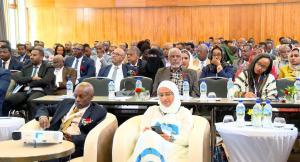
.jpg)
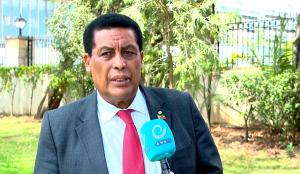
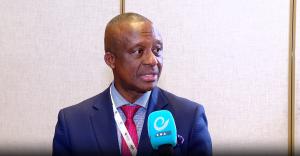
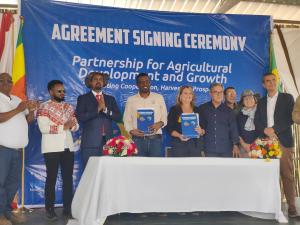

.jpg)




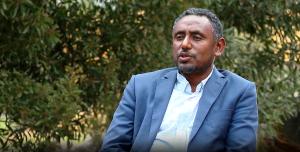
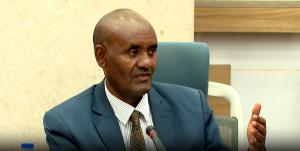
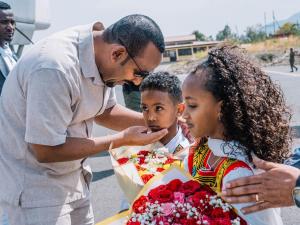
.jpg)

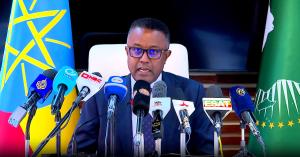
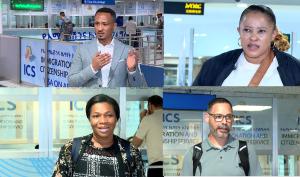
.jpg)
.jpg)
.jpg)
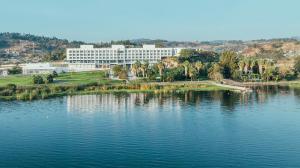
.jpg)
.jpg)
.jpg)

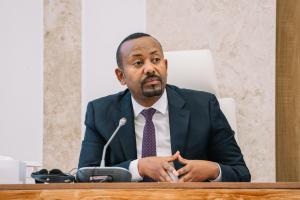
.jpg)
.jpg)
.jpg)




.jpg)
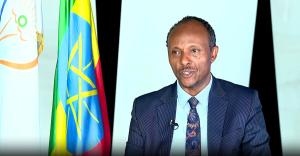
.jpg)
.jpg)

